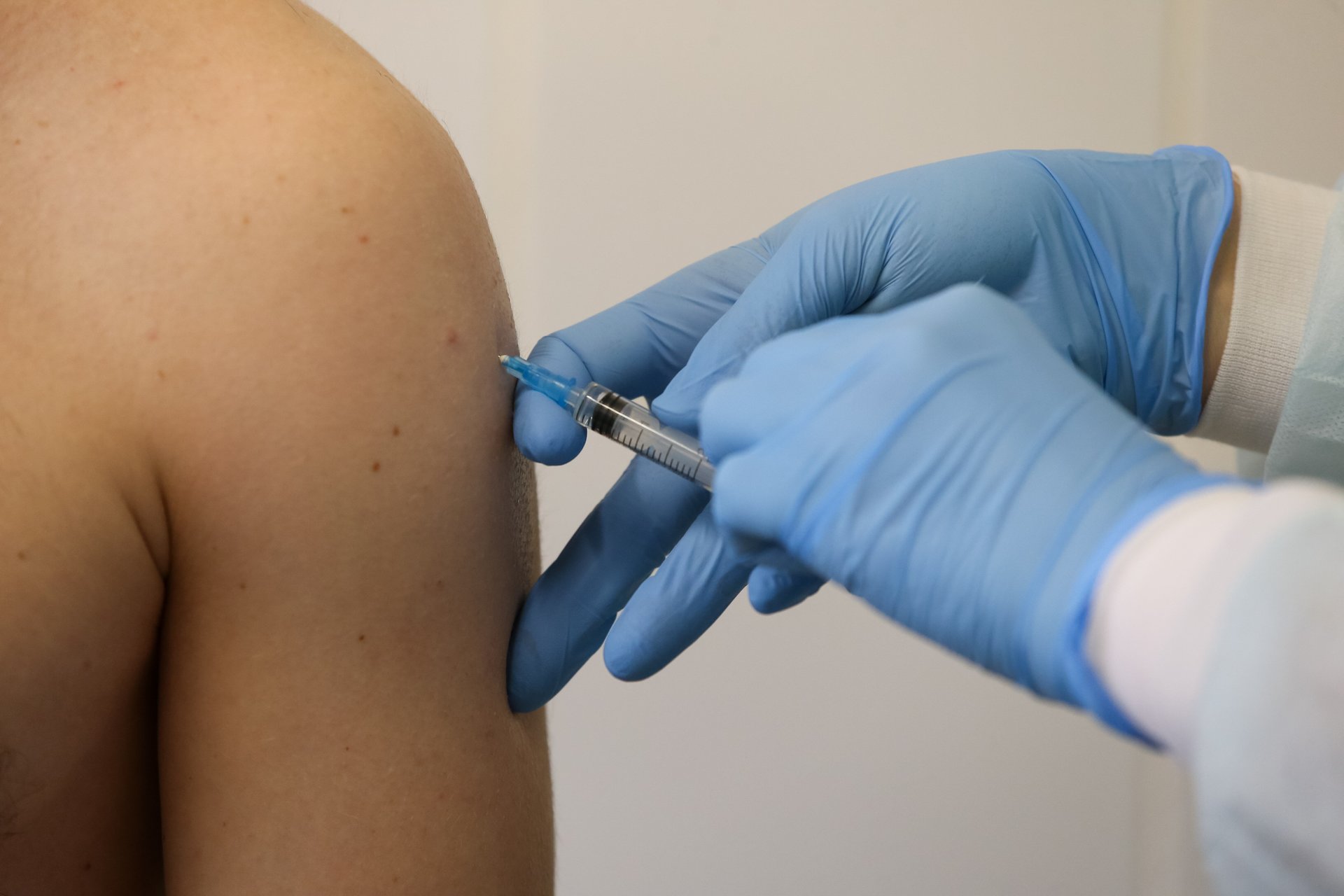Deputy Prime Minister Tatyana Golikova said that the increase in the number of deaths among patients with COVID-19 in Russia is of particular concern.
She announced this at a meeting of President Vladimir Putin with members of the government.
She noted that, according to operational data, more than 1,000 Russian citizens die with COVID-19 every day.
According to her, deaths are recorded, as a rule, among citizens over 60 years old, suffering from chronic diseases and not vaccinated against coronavirus.
Golikova drew attention to the fact that the level of collective immunity to COVID-19 on average in Russia today is 48.4% - the indicator is formed from the number of people who have been ill, vaccinated and have undergone revaccination.
At the same time, the share of vaccinated citizens over 60 years old is 44.7%.
The Deputy Prime Minister emphasized that in order to successfully combat the spread of coronavirus, it is necessary to achieve herd immunity at the level of 80%, taking into account those vaccinated and recovered.
“In order to achieve this figure, we need to vaccinate about 22 million people now, and revaccinate another nine million people,” she explained.
“It is also important to understand that if we do not achieve the numbers that I said about in the near future, then we will lose the pace that we are gaining, and we will have to go back to the circle of revaccination, because the herd immunity indicators will not be change due to the fact that revaccination is suitable for people who were vaccinated earlier, ”the Deputy Prime Minister noted.
She called on citizens who do not have a medical rejection from vaccination to get vaccinated against COVID-19, recalling that most people who go to intensive care with a severe course of the disease have not been vaccinated.
During the meeting, Golikova also said that over the past three weeks, there has been a decrease in the weekly rate of increase in the incidence in the country, including after the introduction of a non-working day regime.
AGN "Moscow"
© Sergey Vedyashkin
30% of detected cases, according to her, occur in large regions such as Moscow, Moscow region and St. Petersburg, another 70% - in other regions of the country.
She also noted that the high detection of the incidence is associated, among other things, with an increase in the number of tests for a new coronavirus infection.
“To date, 301.5 thousand covid beds have been deployed in the Russian Federation, of which 201 thousand beds are equipped with oxygen supply.
As of yesterday morning, 82.8% of beds were occupied in the country as a whole.
I would like to appeal to citizens: the tension in the medical system completely depends on our behavior with you and on our commitment to preventive measures, in which vaccination plays a key role, ”the Deputy Prime Minister emphasized.
In addition, Golikova said that five Russian regions - Kursk, Novgorod, Smolensk, Tomsk and Chelyabinsk regions - have extended the non-working days.
In addition, 77 regions have introduced a requirement for the presentation of QR codes confirming vaccination to visit individual sites and events.
During the meeting, Russian President Vladimir Putin stressed the need to inform citizens about the need to achieve a certain level of vaccination.
The President added that if this is not done, many of the efforts already made may go down the drain, and noted that he would like Russian citizens to hear this.
Meanwhile, in St. Petersburg, the requirement to vaccinate against COVID-19 for residents over 60 years old was introduced into city regulations.
This was reported by TASS with reference to the press service of the city administration.
“Employees of industrial, processing and transport enterprises are subject to compulsory vaccination.
Also, citizens aged 60 and over and people with chronic diseases must get vaccinated, ”the statement said.
In turn, the chairman of the Federation Council Valentina Matvienko did not rule out the introduction of new measures due to the situation with coronavirus infection in Russia.
According to her, in a number of regions "it is possible to take additional measures, stricter measures for certain categories of citizens, again referring to the opinion of scientists, to the opinion of specialists."
"Some solutions are also possible at the federal level in order to improve the situation," TASS quotes her.
At the same time, Alexander Gorelov, deputy director for scientific work of the Central Research Institute of Epidemiology of Rospotrebnadzor, said that in most regions of Russia, the rate of increase in the number of cases of COVID-19 has slowed down.
According to him, "many large regions are gradually entering the stage of stabilization."

